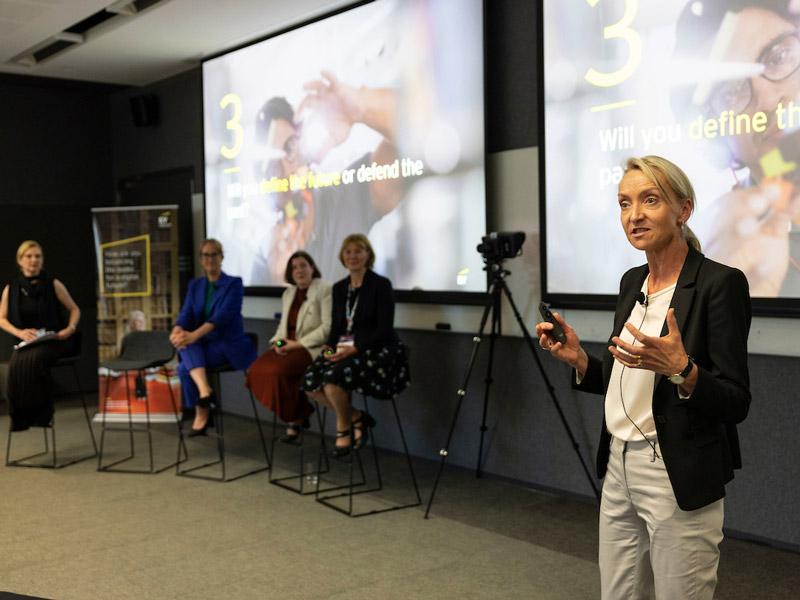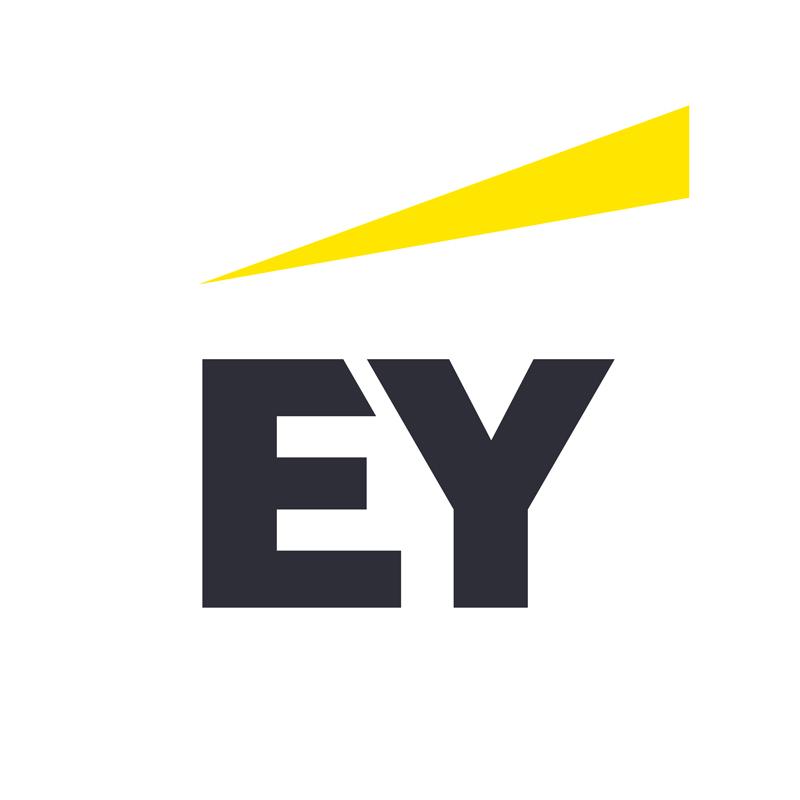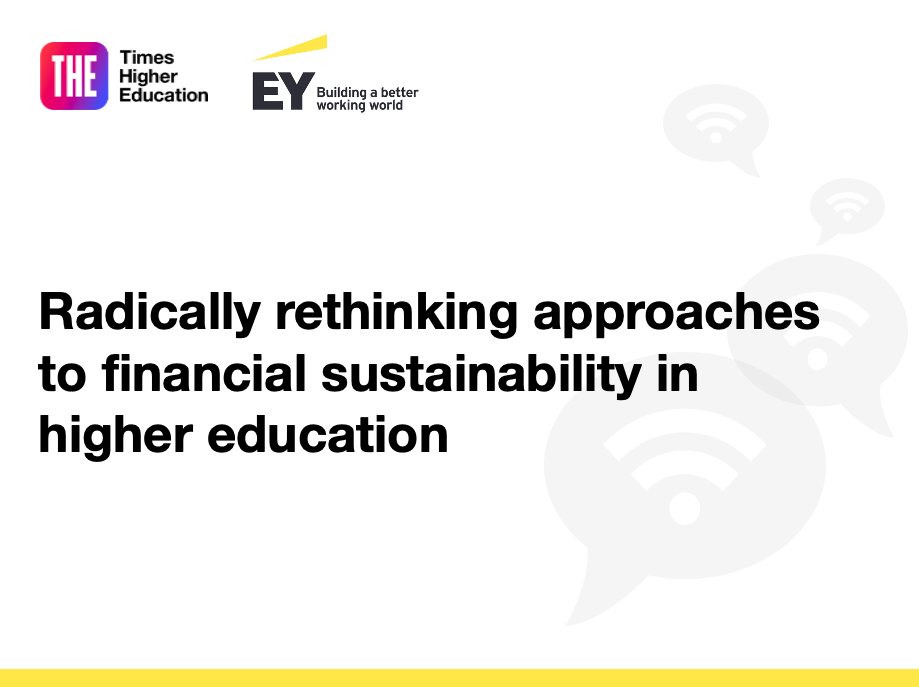
Universities must put people at the centre of strategy to support financial sustainability

Financial sustainability is a major concern for universities globally. At the 2023 THE World Academic Summit, a session held in partnership with EY explored how improving the student experience not only addresses sustainability but also improves all areas of an institution.
The panellists discussed a primary research report by EY and Times Higher Education, which identified four vectors of change necessary for financial sustainability. To improve sustainability, universities must develop strategic distinctiveness with a student focus, deploy technology at scale, create and capture economies of scale and build change capacity, said Catherine Friday, managing partner for government and health sciences at EY Oceania. But, ultimately, having people at the centre of strategy is key. “If you are unable to bring faculty and students with you, everything else is a completely wasted effort,” Friday said.
Students’ expectations have permanently shifted, and their university journey is judged against their day-to-day consumer experiences, said Anna Reid, director of business transformation at EY Australia. So, a differentiated student experience gives a university a competitive advantage.
Mapped on a sentiment curve, the student experience has peaks and troughs. Reid said institutions must identify the moments when the choice to drop out or continue is made. She explained that it’s not just the student a university loses. “You’re possibly losing their friends and their family. There’s a multiplier effect,” she said of the impact of student attrition.
Reid categorised students’ requirements into three areas: convince me, teach me and support me. She said students are choosing universities because they want the flexibility to fit learning around their lifestyle, and to be reassured that they will find employment after graduation.
The university’s reputation is also important. “Knowing who you’re targeting, knowing what your offering is, knowing what you stand for and knowing what you don’t: that is the trick to being able to stand out amongst a sea of noise,” Reid said.
Explaining the “teach me” category, Reid said that a third of students feel neutral at best when asked about the quality of their learning, which might also have a multiplier effect. Flexibility is now a priority for students. Far from just meaning hybrid learning, flexibility demands a consumer-grade experience with immediate access to resources. It also means modular course and pathway design that allows them to change their minds and retain credits, Reid said. This should be designed asynchronously and offer rich, personalised content with career relevance, as well as industry links and work experience.
The “support me” aspect focuses on reducing the friction created by administrative burdens and offering tailored learning support, Reid said. Universities should use technology to predict when support will be needed and install a coaching service to help students meet their learning objectives.
“By fixing the student experience, you have a knock-on effect of fixing the staff experience,” Reid added. This improves internal operations and results in stronger advocacy for the university and a positive multiplier effect. The university will be more attractive for staff and academics and with that comes financial sustainability and funding that can be reinvested.
For digital transformation and financial sustainability, universities must free up funding from their “heritage technology landscape”, explained Alison Cairns, education leader at EY Oceania. There are four key areas for digital transformation, Cairns said. First is the use of data to get a 360-degree view of students and track their learning. Next are intelligent operations and automation to get the best of operational and professional staff. Finally, asynchronous learning and a focus on applied learning and digital organisation.
However, Cairns said, digital transformation won’t be successful unless the operating model details how it will be delivered to students and how faculties and academics will be supported.
Fiona Reyerink, executive director of strategy and operations at Macquarie University, explained Macquarie’s transformation journey with EY. An iterative approach allowed Macquarie to lead with its people and structure, keeping people at the centre. “We absolutely had to have our people ready for digital change for the student-first focus that we wanted to have,” she said. Good governance, change management and open communication helped the transition.
The chance for people to ask questions is important, said Juliet Andrews, partner for people advisory services at EY Australia. She said university staff are passionate and driven to do incredible work. But this can be a downside in the face of the increasingly fast rate of change. “People who work in universities tend to like to get into detail and really debate and argue the evidence,” she said. This creates a tension in the system. Resistance to change can be a reaction to poor communication, bad timing or personal pressures. Leadership must provide psychological safety for people to come on board, she said.
For digital adoption, Andrews recommends getting emerging technology into people’s hands quickly so they can learn how it can help them. Cultivating communities of practice lets people learn from each other as they navigate change.
“When people are emotionally more positive, they are more engaged, more productive and are resilient to change,” Andrews said.
The panel:
- Juliet Andrews, partner for people advisory services, EY Australia
- Alison Cairns, education leader, EY Oceania
- Catherine Friday, managing partner for government and health sciences, EY Oceania
- Anna Reid, director of business transformation, EY Australia
- Fiona Reyerink, executive director of strategy and operations, Macquarie University
Find out more about EY.

